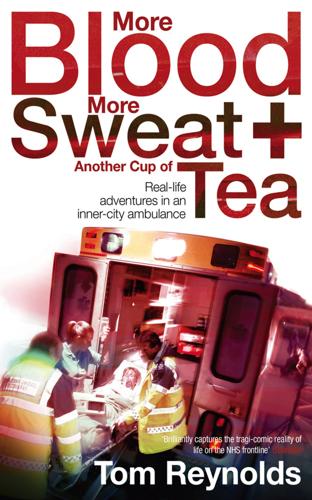
More Blood, More Sweat and Another Cup of Tea
by
Tom Reynolds
Published 30 Apr 2009
Chapter 7 - Chickenpox Chapter 8 - Rough Chapter 9 - The Black Dog Has Been Taken Outside and Shot Chapter 10 - Complaint Chapter 11 - Snapshots Chapter 12 - Repeat Offender Chapter 13 - Algesia Chapter 14 - Back on the Car… Chapter 15 - Wee-Wee Chapter 16 - Swagger Chapter 17 - Scent Chapter 18 - Betting Shops Chapter 19 - It Says ‘London’ on the Side Chapter 20 - Good Job/Bad Job Chapter 21 - Valentine’s Day Chapter 22 - Tagged Chapter 23 - Lost Words Chapter 24 - Bleurgh Chapter 25 - Free-Market Oxygen Chapter 26 - Uniform Chapter 27 - Abuse Your Ambulance Crew Chapter 28 - Slow Suicide Chapter 29 - I Wouldn’t Trust Them with My Dog Chapter 30 - Laughing Policeman Chapter 31 - Structural Collapse Chapter 32 - Shorn Chapter 33 - 12th November 2046 Chapter 34 - On the Power of Blankets Chapter 35 - Friday Night’s All Right for Fighting Chapter 36 - Gassed and Splinted Chapter 37 - More Crap GP Work Chapter 38 - Wasting the Time of a GP Chapter 39 - Small Observation Chapter 40 - (Another) Nan Down Chapter 41 - More Madness in East London Chapter 42 - Ethnic Relations Chapter 43 - Lying to Patients Chapter 44 - Patientside Chapter 45 - Hit and Run Chapter 46 - Happiness Is Chapter 47 - Offering the Chance Chapter 48 - Shaken Baby Chapter 49 - On the Strange Thoughts that Assai I You at Five in the Morning Chapter 50 - Taxi Driving Chapter 51 - An Upsetting Job Chapter 52 - Being Lied to Chapter 53 - Clockwatching Chapter 54 - Thank You Taxpayers Chapter 55 - Helpful Demons Chapter 56 - Absurd Council ‘Thinking’ Chapter 57 - Last Night’s ‘Off Job’ Chapter 58 - Wild Geese Chapter 59 - Why You Should Pull Over and Let Us Pass (Or Hahahahahaha …) Chapter 60 - Arranged Chapter 61 - Sugar Chapter 62 - F-off Chapter 63 - The Standard Weekend Night Chapter 64 - Moped Madness Chapter 65 - Sucking Lungs Chapter 66 - Persuasion Chapter 67 - The Jobs We Do… Chapter 68 - On Dealing with a Brain Surgeon Chapter 69 - Forgetting Your History Chapter 70 - A Warning Chapter 71 - Bloody CPR Chapter 72 - Stabbings and Sex Politics Chapter 73 - New Terms Chapter 74 - Rioting and Waiting Chapter 75 - Not with Your Ten-Foot Barge Pole Chapter 76 - Not All Bad Chapter 77 - Minimalist Blogging #1 Chapter 78 - Minimalist Blogging #2 Chapter 79 - Minimalist Blogging #3 Chapter 80 - Minimalist Blogging #4 Chapter 81 - Minimalist Blogging #5 Chapter 82 - Community Care Chapter 83 - Things that Make Me Want to Go Stabby Chapter 84 - Why I Keep Telling My Mother that I Would Rather Wear Glasses to Work than Contact Lenses—Namely Their Protective Quality Chapter 85 - The Usual Suspects Chapter 86 - Maybe Chapter 87 - Heatwave Chapter 88 - Blue, Blue, Blue and Blue Chapter 89 - Armed Siege Chapter 90 - Working for Your Pay Chapter 91 - Boating Chapter 92 - Intermediate Tier Chapter 93 - Double Fall Chapter 94 - Fall-Not As Given Chapter 95 - Faux Pas Chapter 96 - ‘Cheating’ to Get Care Chapter 97 - Oh FFS!
…
I particularly hate abusive drunk drivers who could have killed someone and who have been flagged as being violent towards anyone in a uniform. When he told us to ‘fuck off’, I was more than happy to open the door to the ambulance and have the police remove him. For some reason I find it difficult to care about his painful hand. Clockwatching It’s 3 a.m. in the lonely hours of the morning and I’m nervous. We are in the bedroom of a six-year-old boy. His mother found him having trouble in breathing half an hour ago. His airways are so tight that every breath that he takes turns his chest inside out. He is trying to breathe so hard that I’m waiting for his breastbone to snap under the strain.
…
Chapter 7 - Chickenpox Chapter 8 - Rough Chapter 9 - The Black Dog Has Been Taken Outside and Shot Chapter 10 - Complaint Chapter 11 - Snapshots Chapter 12 - Repeat Offender Chapter 13 - Algesia Chapter 14 - Back on the Car… Chapter 15 - Wee-Wee Chapter 16 - Swagger Chapter 17 - Scent Chapter 18 - Betting Shops Chapter 19 - It Says ‘London’ on the Side Chapter 20 - Good Job/Bad Job Chapter 21 - Valentine’s Day Chapter 22 - Tagged Chapter 23 - Lost Words Chapter 24 - Bleurgh Chapter 25 - Free-Market Oxygen Chapter 26 - Uniform Chapter 27 - Abuse Your Ambulance Crew Chapter 28 - Slow Suicide Chapter 29 - I Wouldn’t Trust Them with My Dog Chapter 30 - Laughing Policeman Chapter 31 - Structural Collapse Chapter 32 - Shorn Chapter 33 - 12th November 2046 Chapter 34 - On the Power of Blankets Chapter 35 - Friday Night’s All Right for Fighting Chapter 36 - Gassed and Splinted Chapter 37 - More Crap GP Work Chapter 38 - Wasting the Time of a GP Chapter 39 - Small Observation Chapter 40 - (Another) Nan Down Chapter 41 - More Madness in East London Chapter 42 - Ethnic Relations Chapter 43 - Lying to Patients Chapter 44 - Patientside Chapter 45 - Hit and Run Chapter 46 - Happiness Is Chapter 47 - Offering the Chance Chapter 48 - Shaken Baby Chapter 49 - On the Strange Thoughts that Assai I You at Five in the Morning Chapter 50 - Taxi Driving Chapter 51 - An Upsetting Job Chapter 52 - Being Lied to Chapter 53 - Clockwatching Chapter 54 - Thank You Taxpayers Chapter 55 - Helpful Demons Chapter 56 - Absurd Council ‘Thinking’ Chapter 57 - Last Night’s ‘Off Job’ Chapter 58 - Wild Geese Chapter 59 - Why You Should Pull Over and Let Us Pass (Or Hahahahahaha …) Chapter 60 - Arranged Chapter 61 - Sugar Chapter 62 - F-off Chapter 63 - The Standard Weekend Night Chapter 64 - Moped Madness Chapter 65 - Sucking Lungs Chapter 66 - Persuasion Chapter 67 - The Jobs We Do… Chapter 68 - On Dealing with a Brain Surgeon Chapter 69 - Forgetting Your History Chapter 70 - A Warning Chapter 71 - Bloody CPR Chapter 72 - Stabbings and Sex Politics Chapter 73 - New Terms Chapter 74 - Rioting and Waiting Chapter 75 - Not with Your Ten-Foot Barge Pole Chapter 76 - Not All Bad Chapter 77 - Minimalist Blogging #1 Chapter 78 - Minimalist Blogging #2 Chapter 79 - Minimalist Blogging #3 Chapter 80 - Minimalist Blogging #4 Chapter 81 - Minimalist Blogging #5 Chapter 82 - Community Care Chapter 83 - Things that Make Me Want to Go Stabby Chapter 84 - Why I Keep Telling My Mother that I Would Rather Wear Glasses to Work than Contact Lenses—Namely Their Protective Quality Chapter 85 - The Usual Suspects Chapter 86 - Maybe Chapter 87 - Heatwave Chapter 88 - Blue, Blue, Blue and Blue Chapter 89 - Armed Siege Chapter 90 - Working for Your Pay Chapter 91 - Boating Chapter 92 - Intermediate Tier Chapter 93 - Double Fall Chapter 94 - Fall-Not As Given Chapter 95 - Faux Pas Chapter 96 - ‘Cheating’ to Get Care Chapter 97 - Oh FFS!
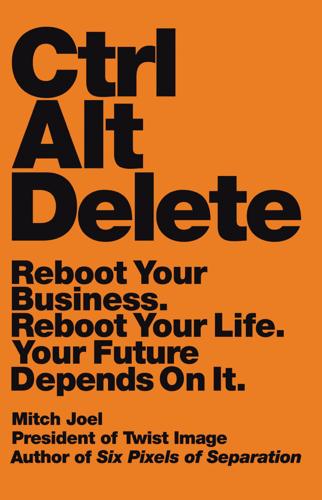
Ctrl Alt Delete: Reboot Your Business. Reboot Your Life. Your Future Depends on It.
by
Mitch Joel
Published 20 May 2013
In the second part of the book (“Reboot: You”), we’re going to get personal and talk about you. The fact is that not only will we need to understand these five major movements, but we’ll also have to reboot who we are and how we work. I have uncovered seven triggers that will help you (and the people you work with) transition from being a “jobber” (someone working nine-to-five, clock-watching, and waiting on your pension plan) to someone who is doing the work that you were meant to accomplish. That’s the real big idea here: The future of business isn’t about what’s written in a contract, it’s about what we do with every waking moment to make it count. These triggers apply to entrepreneurs or being an entrepreneur within an existing organization.
…
The lucky ones are concerned about how they’re going to reach the next plateau or get their full bonus at the end of the year, but there’s a huge swath of people who are mostly just trying to get by. These people are punching the clock and trying to make ends meet. They’re less concerned about where they’re going and much more concerned about not being let go from their jobs tomorrow. Beyond that, there are many people who are unemployed and would welcome the kind of misery that those clock-watchers are enduring. If you look at the global job market, things are not pretty. That was the crux of Thomas L. Friedman’s column on July 12, 2011, in the New York Times titled “The Start-Up of You.” His premise? The job market is not going to get any better, because the jobs of yesterday are gone and the companies with big valuations (he names Facebook, Twitter, etc.) aren’t looking for the types of workers that companies used to hire decades ago.

Your Life in My Hands: A Junior Doctor's Story
by
Rachel Clarke
Published 14 Sep 2017
Dave and I swiftly discovered that the net financial benefit to our family of my working was less than zero. By becoming an NHS doctor, I was losing my family around £5,000 a year since our childcare costs outstripped my income. One weekend on call could last thirty-five hours and cost close to £500 in childcare. Antisocial hours were only a part of it. To avoid being a clock-watching doctor, someone who raced out of the ward on the dot of five to reach the nursery before it closed, we paid for childcare that ran on into the evenings, since the workload invariably did the same, regardless of what were, on paper, our official hours. There was no other way to avoid becoming the kind of doctor who dumped on her colleagues or abandoned her patients if they took a turn for the worse at the end of the day.
…
Nonetheless, it is perfectly clear that, as resources are squeezed ever tighter, compassion, kindness and attention to patients as individuals are being rationed as surely as the cataract surgeries, hip operations and the latest expensive cancer drugs. Staff may continue to remove themselves from brutalising conditions of work – as I did temporarily – or, with their compassion and commitment to the NHS fatally worn down, they may morph into burned-out clock-watchers. Either way, the health service is compromised, moving a step away from what it should – and still could – be. Like the other great schisms in British politics in 2016 and 2017 – over Brexit, Nigel Farage, the price of Marmite, the shape of a Toblerone – the National Health Service is one of the great polarising forces of national life.

Marx: A Very Short Introduction
by
Peter Singer
Published 15 Mar 2000
It is a statement which contrasts oddly with what Marx says about communism in his comments on the Gotha Program – also a late work – which are as optimistic as any of the early statements. There Marx foresees the end of the ‘enslaving subordination of the individual to the division of labour’ and a time when labour will become ‘not only a means of life, but life’s prime want’ (GP 569). The idea of labour as ‘life’s prime want’ is very different from the clock-watching attitude that takes the shortening of the working day as the prerequisite of freedom. It is, incidentally, in these comments on the Gotha Program that Marx proposes the celebrated principle of distribution for a communist society: ‘from each according to his ability, to each according to his needs’.

Britannia Unchained: Global Lessons for Growth and Prosperity
by
Kwasi Kwarteng
,
Priti Patel
,
Dominic Raab
,
Chris Skidmore
and
Elizabeth Truss
Published 12 Sep 2012
In 2007, Sainsbury’s caused some controversy when the company praised the ‘superior’ work ethic of migrant workers from Eastern Europe, and expressed the hope that it would rub off on ‘domestic colleagues’. 11 Similarly, garden centre boss Richard Haddock complained that the school leavers allocated to him by the JobCentre were ‘unsuited for the world of work’. Last year, Indian steel tycoon Ratan Tata complained in a similar way that clock-watching UK managers were unwilling ‘to go the extra mile’, and seemed never to be found in the office past 3.30pm on a Friday.12 So much for Britain’s legendary Protestant work ethic. But how far can we generalise from anecdotal experience? Work Ethic 65 Idlers of the World? Historically, continental Europeans led the way when it came to hard work.

How to Be Right: In a World Gone Wrong
by
James O'Brien
Published 2 Nov 2018
Don’t fob voters off with another talking head or let an attention-seeking backbencher take five minutes of flak, in return for a pat on the back from Central Office and a knighthood 20 years down the line. And, when a minister does put his head above the parapet, don’t let him answer a question you haven’t asked. Don’t let him insult us all by going off on a clock-watching tangent and then complain that he isn’t being allowed to speak when you interrupt him. Interrupt him again. And again. And keep interrupting him until he either answers the question he’s been asked or admits that he can’t. If that seems too uncomfortable a challenge, stop socialising with these people.
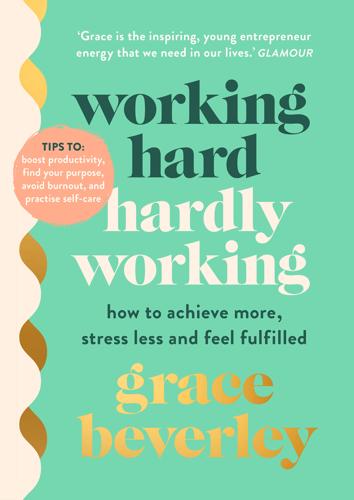
Working Hard, Hardly Working
by
Grace Beverley
If you work within a traditional structure, talk to your manager about your workload – the more awareness they have, the more they can speak up for you, and even say no for you when needed or when more senior people throw their weight around. You may not feel like you can – it does depend on your relationship to a degree – but part of their job is to look after your workload. Once again, communication is key! Tasks vs time. Work by task rather than time where possible. Clock-watching is boring as hell and a waste of your time, as well as everyone else’s. Understand how much capacity you have and work on tasks accordingly. Finding it hard to concentrate? Set yourself a few easier tasks to complete and promise yourself a break. Make sure this is a set amount though – don’t fall into the Admin Demon’s trap!

Discardia: More Life, Less Stuff
by
Dinah Sanders
Published 7 Oct 2011
Symptom #39: Killing Time Solution #39: Living in the Present I know you all have ideas sitting in the back of your head; go out and start it. I mean, there's no reason not to. Don't be afraid. —Will Smidlein, teen entrepreneur Don’t live the life of having to make the time pass Don’t spend your time hanging on for tomorrow, clockwatching, and merely enduring. Do what you love whenever you can. Laugh long and hard at anyone who says you’re done living and that it’s time to buckle down to “real life,” by which they mean horrible dullness. There is absolutely no excuse for failing to notice repeatedly that existence is bloody brilliant!
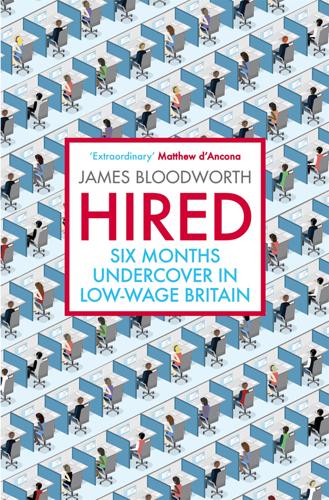
Hired: Six Months Undercover in Low-Wage Britain
by
James Bloodworth
Published 1 Mar 2018
According to Unison, three-quarters of English councils commissioned visits of fifteen minutes in 2014, up from 69 per cent the previous year.19 Half a million (593,000) care visits between 2010 and 2013 lasted five minutes or less.20 When the five-minute figure made national headlines in 2013, the care minister at the time, Liberal Democrat MP Norman Lamb, lamented the findings as ‘totally inappropriate and unacceptable’. Yet so-called ‘clock-watch care’ was arguably the logical conclusion of both the privatisation of social care and the swingeing cuts to council budgets which the 2010–15 coalition government (of which Norman Lamb was an integral part) implemented with gusto. Prior to the 2015 General Election, Labour leader Ed Miliband promised to ban care visits lasting a quarter of an hour if he became Prime Minister.
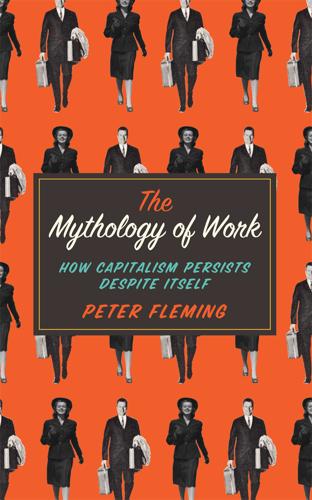
Mythology of Work: How Capitalism Persists Despite Itself
by
Peter Fleming
Published 14 Jun 2015
Professions, Immaterial Labor and the Future of Work’. In S.H. Bolton (ed.). Searching for the Human in Human Resource Management: Theory, Practice and Workplace Contexts. Basingstoke: Palgrave MacMillan, pp.263–280. Hardt, M. and Negri, A. (2000). Empire. Cambridge, Mass.: Harvard University Press. Hart, A. (2014). ‘Why Everyone’s Started Clockwatching’. Stylist, 30 April. Harvey, D. (2001). Spaces of Hope: Towards a Critical Geography. Edinburgh: University of Edinburgh Press. Harvey, D. (2014). Seventeen Contradictions and the End of Capitalism. New York: Profile. Hasek, J. (1973). The Good Soldier Svejk. London: Penguin Books. Hayek, F. (1960).
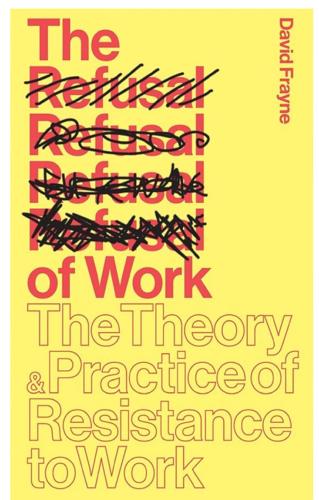
The Refusal of Work: The Theory and Practice of Resistance to Work
by
David Frayne
Published 15 Nov 2015
Whilst it would be absolutely blinkered to deny that the escape to a slower pace of life is a practical impossibility for many people, who would not be able to survive economically, it is equally reckless to accept the idea that high-consumption lifestyles are the fixed norm to which everybody should aspire. SEVEN * * * Half a person Idler, drone, lazybones, lie-abed, loafer, lounger, flâneur, sloucher, sluggard, slacker, skiver, clock-watcher, Weary Willie, moper, sleepyhead, dawdler, slowcoach, hobo, bum, tramp, wanderer, mendicant, beggar, spiv, parasite, cadger, sponger, scrounger, moocher, freeloader, layabout, good-for-nothing, ne’er do well, wastrel, slubberdegullion, floater, drifter, free-wheeler, opium-eater, waiter on Providence, fatalist, nonworker … Roget’s Thesaurus As part of their art project ‘Learning to Love You More’ (July and Fletcher, 2007), the artists Miranda July and Harrell Fletcher asked members of the public to complete the following assignment: ask your family to describe what you do.
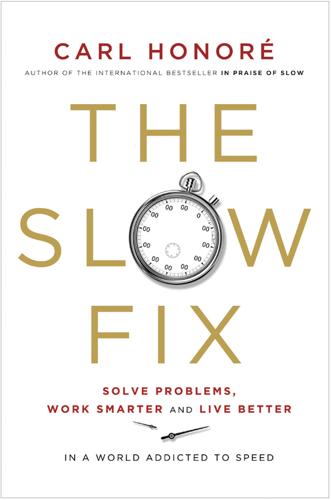
The Slow Fix: Solve Problems, Work Smarter, and Live Better in a World Addicted to Speed
by
Carl Honore
Published 29 Jan 2013
The more you use the ingredients of the Slow Fix – admitting mistakes, pausing to think, joining the dots, sweating the small stuff, taking the long view – the better you come to understand whatever it is you do and the more likely you are to develop the intuition needed to deal with problems swiftly in the future. “When you have years and years of practice and knowledge behind you, nothing escapes your notice,” says Hodgman. “Whatever the time constraints, you will spot the problem and find a way to fix it.” That is true beyond the clock-watching world of motor racing. Gary Klein has spent nearly 30 years studying how people tackle problems under duress. Along the way he has become a leading proponent of the power of intuition. In his book Sources of Power he shows how expertise built on practice, training and experience is the most reliable recipe for a good fix when time is tight.
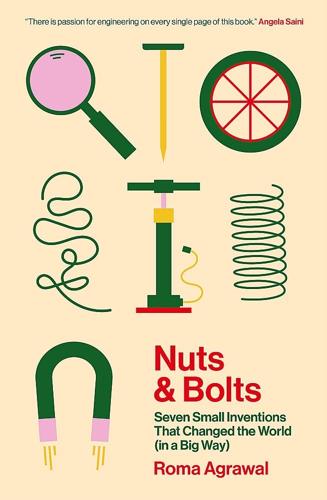
Nuts and Bolts: Seven Small Inventions That Changed the World (In a Big Way)
by
Roma Agrawal
Published 2 Mar 2023
Knib’s Dyal in Fleet-street it was just two, when I came to Ludgate it was half an hour past one, when I came to Bow Church, it wanted a quarter of two, by the Dyal near Stocks Market it was a quarter past two, and when I came to the Royal Exchange it wanted a quarter of two . . . This disgruntled clock-watcher would have been happy to know that a big improvement in escapement design had already been developed by the Dutch polymath Christiaan Huygens, who in 1656 incorporated a pendulum into the design of clocks. This is a weight attached to the end of a long, thin rod, which swings back and forth very consistently.

Dear Fatty
by
Dawn French
Published 8 Nov 2011
Tiny but effective measures were taken, e.g. the yanking up of bra straps to force teen bosoms into a more upright position, the rolling over of the waistband of the school kilt incrementally raising the hemline of the skirt, loosening of a button or two on the blouse, the careful arranging of a special magician’s-secret-type knot in the school tie which could be hoiked off in an instant without wasting the precious extra three seconds it would otherwise take to get it off at the end of the day. A tiny imperceptible amount of orangey Avon spot-cover and foundation and perhaps the merest hint of pale lipstick. The afternoon lessons were pointless on those days. We could not possibly concentrate. All we could think of was the imminence of boy time. We clock-watched and fidgeted our way through French and bloody vile double maths until, like New Year’s Eve, but silently, internally, we counted down the seconds to the end-of-the-day bell. Then, and only then, could we race to the loo, hastily slap on the full orange grouting and many, many, many layers of thick gloopy mascara, eyeshadow, blusher, roll-on deodorant, breath freshener, brush teeth, brush hair and let hang loose, roll up skirt even further, put on jewellery, spray Aquamanda perfume behind ears, on wrists, on crotch, whisk off tie – hey presto!

K2: Life and Death on the World's Most Dangerous Mountain
by
Ed Viesturs
and
David Roberts
Published 13 Oct 2009
I always sleep with my boots in my sleeping bag, though not on my feet. Lots of climbers don’t. So in the morning they have to put on cold boots, which will instantly suck precious warmth from their feet, whose blood circulation is sorely taxed to begin with. That contributes to a bad start. On my expeditions, I’ve always been the clock-watcher. I always have a plan. I want to be in control of the time. In a way, that’s just part of my nature—I tend to be punctual. The night before, I’ll remind my partners, “We need to be out the door by one or one-thirty A.M.” Other climbers seem to have the attitude of “Oh, I’ll leave when I’m ready.”
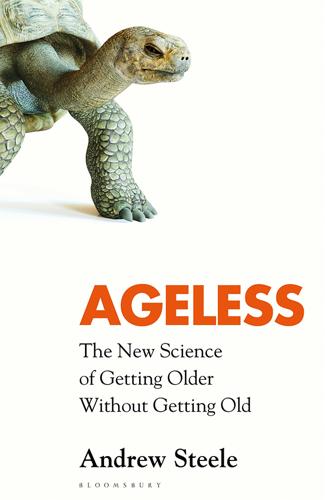
Ageless: The New Science of Getting Older Without Getting Old
by
Andrew Steele
Published 24 Dec 2020
DOI: 10.1016/j.cels.2017.03.006 ageless.link/cvj3ba The 8,000 samples [Horvath] used in his first paper … Steve Horvath, ‘DNA methylation age of human tissues and cell types’, Genome Biology 14, R115 (2013). DOI: 10.1186/gb-2013-14-10-r115 ageless.link/gkjacc … he later told a reporter that he had trouble believing … This is an accessible account of Horvath’s work. W. Wayt Gibbs, ‘Biomarkers and ageing: The clock-watcher’, Nature 508, 168–70 (2014). DOI: 10.1038/508168a ageless.link/eginsd … people … die sooner See, for example, Brian H. Chen et al., ‘DNA methylation-based measures of biological age: Meta-analysis predicting time to death’, Aging 8, 1844–65 (2016). DOI: 10.18632/aging.101020 ageless.link/gpji9v 5.

iPad: The Missing Manual, Fifth Edition
by
J.D. Biersdorfer
Published 21 Nov 2012
To use it: Tap Home→Clock, and then tap the Stopwatch tab at the bottom of the screen. Tap the Start button to start the clock. Tap the Lap button when you complete a lap but want the overall Stopwatch to keep counting. Tap Stop when you’re done, or Reset to wipe all the displayed times. Timer The Clock’s Timer function is handy for cooks and other clock-watchers. To set it: Tap Home→Clock, and then tap the Timer tab at the bottom of the screen. Spin the wheels in the middle of the screen to dial up the amount of time for your task. Tap the Sounds button in the top-left corner to pick the alert noise that plays when time’s up. Tap Start.

A Very Strange Way to Go to War: The Canberra in the Falklands
by
Andrew Vine
Published 30 Jun 2012
She would sail the next night and go in for the landings on 21 May. CHAPTER ELEVEN Take Cover, Take Cover STEAK WAS served at breakfast, lunch and dinner on May 20, and if that had about it the air of a condemned man being offered a special meal before going to the gallows, then it chimed with the tension and clock-watching. Temporarily returning to cruise-ship fare for men about to go into action seemed entirely appropriate to Canberra’s officers; heaven alone knew what lay ashore, so the best they could do was give them the finest food on board, and as much of it as the soldiers wanted. Rudderham’s stock of fillet steak took a battering as the men of 42 Commando, for whom it had been an occasional treat, devoured it in the morning, afternoon and evening, all the more gleefully for knowing that the best 40 Commando and 3 Para could expect in the horribly cramped conditions of Fearless and Intrepid was stew.
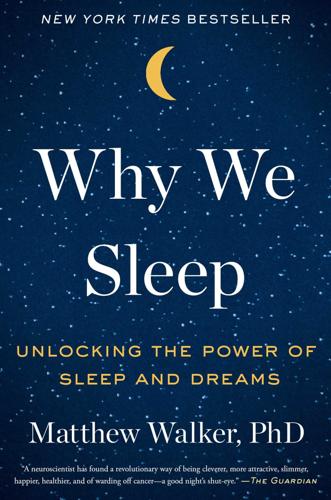
Why We Sleep: Unlocking the Power of Sleep and Dreams
by
Matthew Walker
Published 2 Oct 2017
In addition, patients must (1) establish a regular bedtime and wake-up time, even on weekends, (2) go to bed only when sleepy and avoid sleeping on the couch early/mid-evenings, (3) never lie awake in bed for a significant time period; rather, get out of bed and do something quiet and relaxing until the urge to sleep returns, (4) avoid daytime napping if you are having difficulty sleeping at night, (5) reduce anxiety-provoking thoughts and worries by learning to mentally decelerate before bed, and (6) remove visible clockfaces from view in the bedroom, preventing clock-watching anxiety at night. One of the more paradoxical CBT-I methods used to help insomniacs sleep is to restrict their time spent in bed, perhaps even to just six hours of sleep or less to begin with. By keeping patients awake for longer, we build up a strong sleep pressure—a greater abundance of adenosine.

Moon Shot: The Inside Story of America's Apollo Moon Landings
by
Jay Barbree
,
Howard Benedict
,
Alan Shepard
,
Deke Slayton
and
Neil Armstrong
Published 1 Jan 1994
This was a time of cliff-hanging suspense, a time to count the minutes and seconds that must pass before Apollo 8 emerged from the lunar back side to where it could send the desperately hoped-for signal of success. Jerry Carr kept up a persistent call of “Apollo 8 . . . Apollo 8 . . . Apollo 8 . . . ” After what seemed an eternity of intense clock-watching, headsets and speakers crackled. Smooth and calm as always came the voice of Jim Lovell: “Go ahead, Houston.” Those three words—coming just at the instant they should have— sent Mission Control into a bedlam of cheering, whistling, shouting, and applause. Electronic signals flashed their message on the big viewing board.
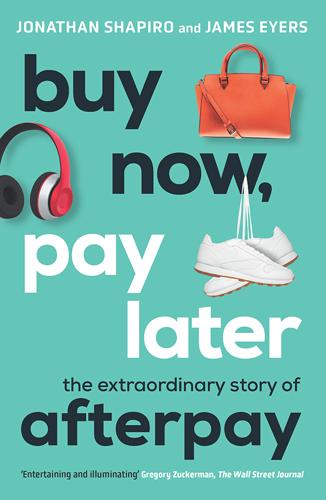
Buy Now, Pay Later: The Extraordinary Story of Afterpay
by
Jonathan Shapiro
and
James Eyers
Published 2 Aug 2021
CEO Jan de Smet insisted the project be based in Belgium, and Course assembled a team of seven developers who worked fourteen-hour days that often ended in a late dinner at the Oude Market in Leuven, where they lived. There was a cultural divide among the hardworking but jovial Australians and the clock-watching Belgians, who fought over car-spot allocations. But the fate of Intellect depended on the TAFMO project. This was no time for petty office politics. The technology developed by TAFMO had powerful applications. The Australian payments system was old, clunky and prohibitive for new players to access.

The Difference Engine
by
William Gibson
and
Bruce Sterling
Published 31 Aug 1990
The place was full of bettering-blokes, really: shopkeepers and store-clerks and druggists, with their tidy wives and broods. In her father's day, such people, Whitechapel people, had been angry and lean and shabby, with sticks in their hands, and dirks in their belts. But times had changed under the Rads, and now even Whitechapel had its tight-laced scrubfaced women and its cakey clock-watching men, who read the 'Dictionary of Useful Knowledge' and the 'Journal of Moral Improvement', and looked to get ahead. Then the gas-lights guttered in their copper rings, and the orchestra swung into a flat rendition of "Come to the Bower." With a huff, the limelight flared, the curtain drew back before the kinotrope screen, the music covering the clicking of kino-bits spinning themselves into place.

Make Your Own Job: How the Entrepreneurial Work Ethic Exhausted America
by
Erik Baker
Published 13 Jan 2025
Nader’s expectations could test the physical limits of even the most zealous citizen entrepreneurs: when asked by one interviewer how many hours he expected CRL employees to work, he deadpanned, “The ideal is 100.”21 The notion that prospective citizen entrepreneurs should anticipate a workweek that far exceeded what the clock-watchers in corporate America could stomach was a motif that tied together the profiles that began each edition of Good Works. “I usually come to work at 8:00 or 8:30 a.m.,” reported ACORN staffer Terese Bouey. “I stay until about 9:00 at night Monday through Saturday (Sunday I work about four hours).”
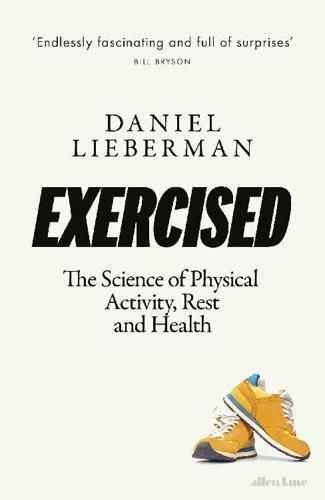
Exercised: The Science of Physical Activity, Rest and Health
by
Daniel Lieberman
Published 2 Sep 2020
G. (2013), The role of mitochondria in aging, Journal of Clinical Investigation 123:951–57. 31 All your cells have the same genome, so you need epigenetic modifications to enable a skin cell to function differently from a neuron or a muscle cell. Some epigenetic modifications appear to be passed on from one generation to the next, making this a nongenetic form of inheritance. 32 Horvath, S. (2013), DNA methylation age of human tissues and cell types, Genome Biology 14:R115; Gibbs, W. W. (2014), Biomarkers and ageing: The clock-watcher, Nature 508:168–70. 33 Marioni, R. E., et al. (2015), DNA methylation age of blood predicts all-cause mortality in later life, Genome Biology 16:25; Perna, L., et al. (2016), Epigenetic age acceleration predicts cancer, cardiovascular, and all-cause mortality in a German case cohort, Clinical Epigenetics 8:64; Christiansen, L., et al. (2016), DNA methylation age is associated with mortality in a longitudinal Danish twin study, Aging Cell 15:149–54. 34 He, C., et al. (2012), Exercise-induced BCL2-regulated autophagy is required for muscle glucose homeostasis, Nature 481:511–15. 35 This mechanism is especially fascinating because of the molecule mTOR (mammalian target of rapamycin), a protein that senses amino acids and promotes growth.

A Life in Secrets
by
Sarah Helm
Published 1 Jan 2005
Perhaps her indebtedness to him for his protection during her difficult times was such that she instinctively protected him in return when he came under attack for F Section's failings. There were occasionally small chinks in that loyalty—signs, almost, of rivalry. Asked once about the long hours Buckmaster worked at F Section, Vera scoffed, saying he was “the worst clock-watcher of all.” And she also allowed a difference of opinion to open up with her former boss over Déricourt. She had told me she never trusted Déricourt, and I soon discovered that in older age she had made a point of telling many people the same thing, even giving interviews for TV documentaries on the subject.

She Has Her Mother's Laugh
by
Carl Zimmer
Published 29 May 2018
Geserick, Gunther, and Ingo Wirth. 2012. “Genetic Kinship Investigation from Blood Groups to DNA Markers.” Transfusion Medicine and Hemotherapy 39:163–75. Gibbons, Ann. 2006. The First Human: The Race to Discover Our Earliest Ancestors. New York: Doubleday. Gibbs, W. Wayt. 2014. “Biomarkers and Ageing: The Clock-Watcher.” Nature 508:168. Giese, Lucretia Hoover. 2001. “A Rare Crossing: Frida Kahlo and Luther Burbank.” American Art 15:52–73. Gilbert, Scott F. 2014. “A Holobiont Birth Narrative: The Epigenetic Transmission of the Human Microbiome.” Frontiers in Genetics 5:282. Gill, Peter, Pavel L. Ivanov, Colin Kimpton, Romelle Piercy, Nicola Benson, Gillian Tully, Ian Evett, Erika Hagelberg, and Kevin Sullivan. 1994.

Southeast Asia on a Shoestring Travel Guide
by
Lonely Planet
Published 30 May 2012
Standard Thai dishes, like đôm yam and gaang kĕe·o wăhn, are transformed into vegetarian versions, while festival specific Hokkien-style yellow noodles are stir-fried with meaty mushrooms and big chunks of vegetables. Don’t cut those long noodles as they represent good luck. * * * SIAM SQUARE Food vendors on Soi Kasem San 1 do a brisk business of feeding hungry clockwatchers and lounging faràng (foreigners) ; they are masters at communicating with hand gestures. MBK Food Court THAI $ (6th fl, MBK, cnr Th Phra Ram I & Th Phayathai; dishes 40-60B; lunch & dinner; BTS National Stadium) The best introduction to street food a roving stomach could find. This mall food court has helpful English menus, cool air-con and all the standard dishes you’ll need to know in order to conquer the menu-less street stalls.